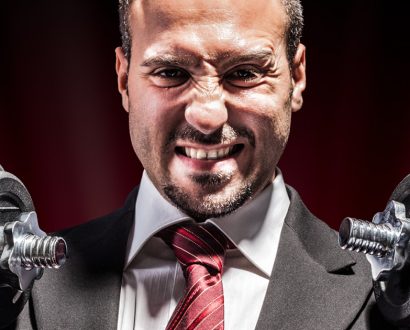Founder of Change Ready Simon Rountree wants CEOs and industry leaders to ask themselves this question: Is your leadership promoting a culture of bullying or are you making employees accountable for their actions and fostering a progressive culture?
Formerly the CEO of Camp Quality for 16 years, Simon spoke with us about actions that help propel organisations forward, and the changes he hopes to see.
What is Change Ready and what is its mission?
Change Ready is about supporting organisations through reducing risk, and helping companies to increase sales, be innovative and improve workplace engagement. We do that through evidence-based and practical programs that help build resilience and make people change-ready within organisations.
It’s about helping to build companies or cultures that are ready to deal with change, adversity or ambiguity in the workplace. Businesses are going to change, whether it’s because of technology or businesses asking their people to do more with less.
Change is the norm for the workplace. Our task is to ask companies: ‘How do you build your teams to help them deal with change without derailing or making the business less functional?’
What influenced you to start Change Ready?
It came from my time as CEO of Camp Quality. During that period, a different organisation took over the business, and it was in substantial financial difficulty. So Camp Quality, which had been a great business supporting children with cancer throughout Australia, was about to close its doors because of poor business practices. Like any organisation, you can streamline your governance and exercises to be more efficient and effective. But that would only go so far.
The real change in industry growth starts with its people. Therefore, I went out and looked at research from Harvard University and Stanford in America, Oxford in the UK, Melbourne University in Australia, and elsewhere. We created a science-based program that was about giving people the skills and tools to be resilient – because resilience is a skill that you can learn.
“Change is the norm for the workplace. Our task is to ask companies: ‘How do you build your teams to help them deal with change without derailing or making the business less functional?’”
I started working on a template of how companies can deal with challenges, setbacks and bounce-backs. Research showed that optimistic thinking is where people create innovation and growth. When the template was used at Camp Quality, it made a massive difference. It went from near bankruptcy to generating AU$20 million a year.
Our program grew from serving 2,000 kids with cancer to over a quarter of a million a year. It was all because I went, ‘If we can do it here, then we can do it with other companies.’
Did you experience much pushback from other companies because, ultimately, it comes down to companies admitting that there is a problem?
There’s no reluctance from organisations realising they want to change but there is reluctance in getting out of the mindset of ‘we’re too busy to change’. Many businesses say, ‘We’re busy trying to do day-to-day stuff. We don’t have time to try and learn those things to change.’
However, if CEOs spend the time to invest now, this is going to pay dividends not only tomorrow but in the future. Once you’ve done it, you don’t have to keep retraining people. It just becomes the fabric of the organisation. I think that’s the most significant difficulty: getting companies to go, ‘This is important. We’re going to do this today rather than down the track.’
I came across the term ‘change leadership’ on your website. What does it mean?
We work a lot with leaders around mindful leadership. It’s about going back to basics. Instead of being a multitasker, you need to be a mono-tasker, which means focusing on one thing. If I use the juggling analysis; the ball in your hand is the ball you concentrate on and give your full attention. You then release it in the air to grab the next ball.
We work with leaders to help them be mindful in their leadership, which allows them to stay focused, and makes them better communicators.
By being a better communicator, you can communicate with your team with less ambiguity. Better communication allows the team to understand where it’s heading, how they are going to contribute, and the outcome you’re all working towards.
Have you noticed specific sectors or levels of management where issues such as bullying are more prevalent?
I’ve seen a lot of bad situations across financial institutions, such as banking and insurance. And I’ve also seen a lot within government sectors as well. In most cases, employers leave because they’re not happy with how their manager is treating them.

Simon, what would you say are the three qualities of a successful CEO or a strong leader?
The first quality is emotional intelligence; meaning understanding employee emotions, reading emotions, and recognising the effect emotions have on the business. Also, someone who can create engagement through a vision that they have for the organisation. So that they can articulate to people, ‘this is where we want to go, this how we want to do it, and this is the part that you can play in helping us get there’.
What are some changes or implementations that businesses can make to support its staff?
The essential future skills within many industries are going to be the people skills. Again, it’s about how to train people to be emotionally intelligent and emotionally aware, so that they arrive to work and leave their baggage behind and concentrate fully on the job.
“Everyone can change and change for us equals growth as humans.”
Empathy is another one, so is building resilience. Again, how do you make your individuals deal with challenges and changes, so that they bounce back even stronger?
I think emotional intelligence, listening skills. and teaching people creative and analytical thinking skills are also important. So that people can look at a problem, accept the problem and look for alternatives or solutions.
In essence that creates a mindset of, ‘I don’t know the answer to the question, I believe somebody else might.’ I think those people skills are going to be hugely crucial for businesses growing into the future.
People skills are critical, particularly as we move into an age of technology taking over many jobs. Automation is coming into play. But what automation can’t do, or technology can’t do, is the human side of things such as the engagement you can create, connection between people and people feeling valued at work.
Simon, how do you stay motivated?
I love seeing the change that can happen in people. We get stuck in our ways and think there are some difficulties we can’t change, but it’s simply not true.
Everybody can change, whether you’re challenging yourself to learn a new language, or to upskill and learn something new at work. Everyone can change and change for us equals growth as humans. We grow and develop when we tackle and deal with change.
What are some of your goals for next year with Change Ready?
Our goals are to help businesses improve their capabilities, such as sales and workforce engagement. Additionally, we want to make this standard business practice, where companies have emotionally intelligent people who are change-ready. That’s our goal.
Read next: Lessons for leaders in implementing change







